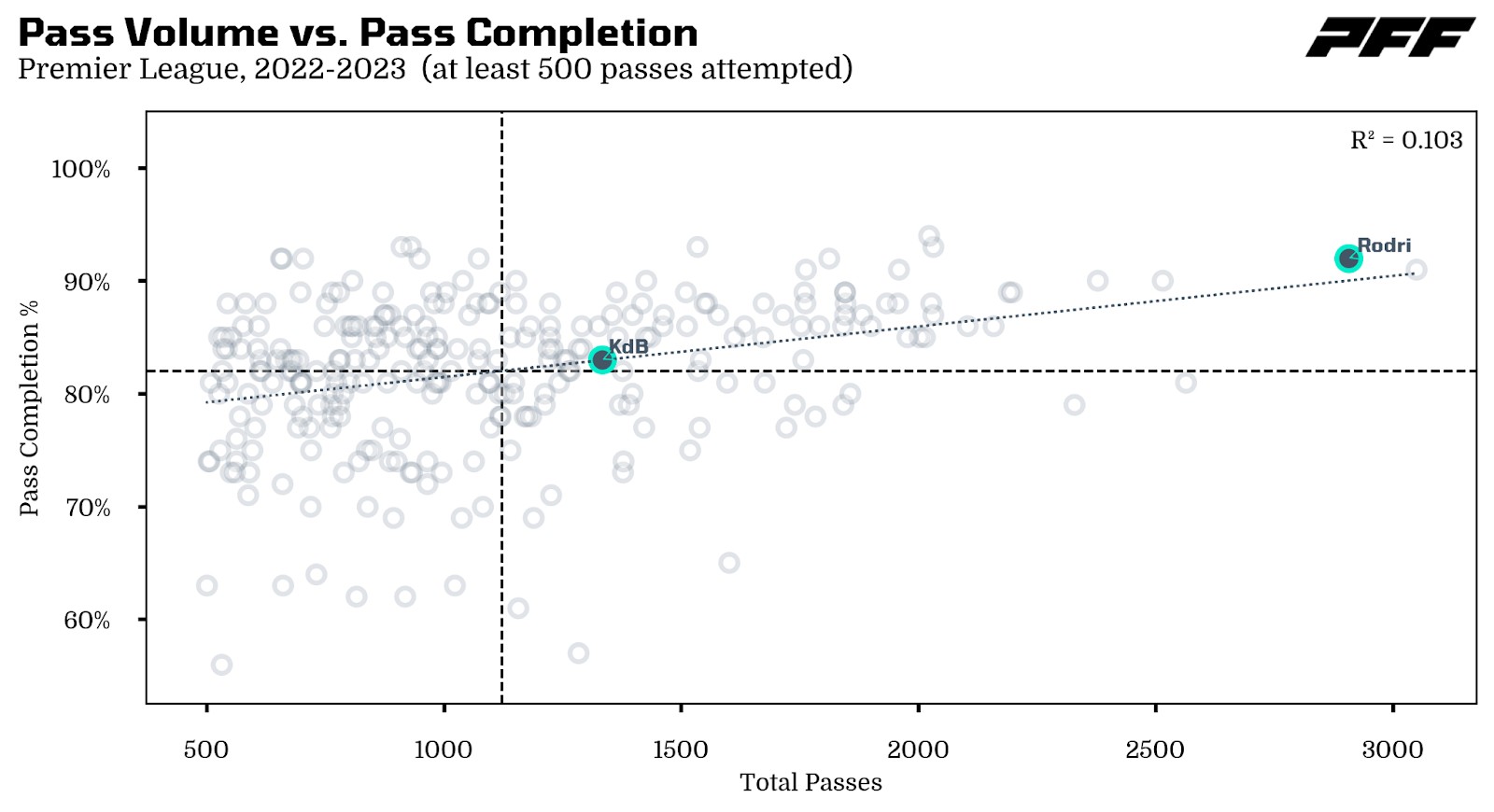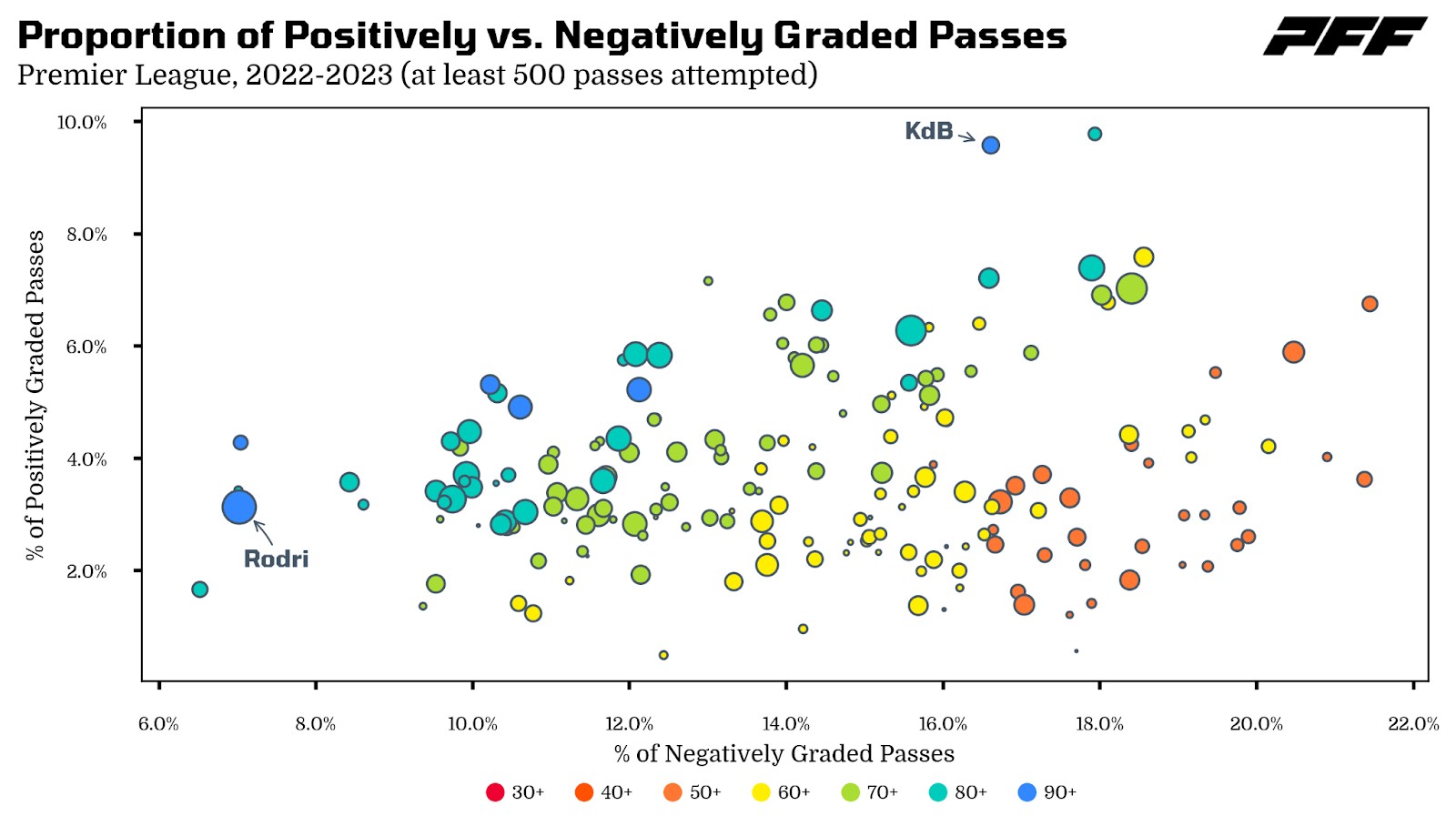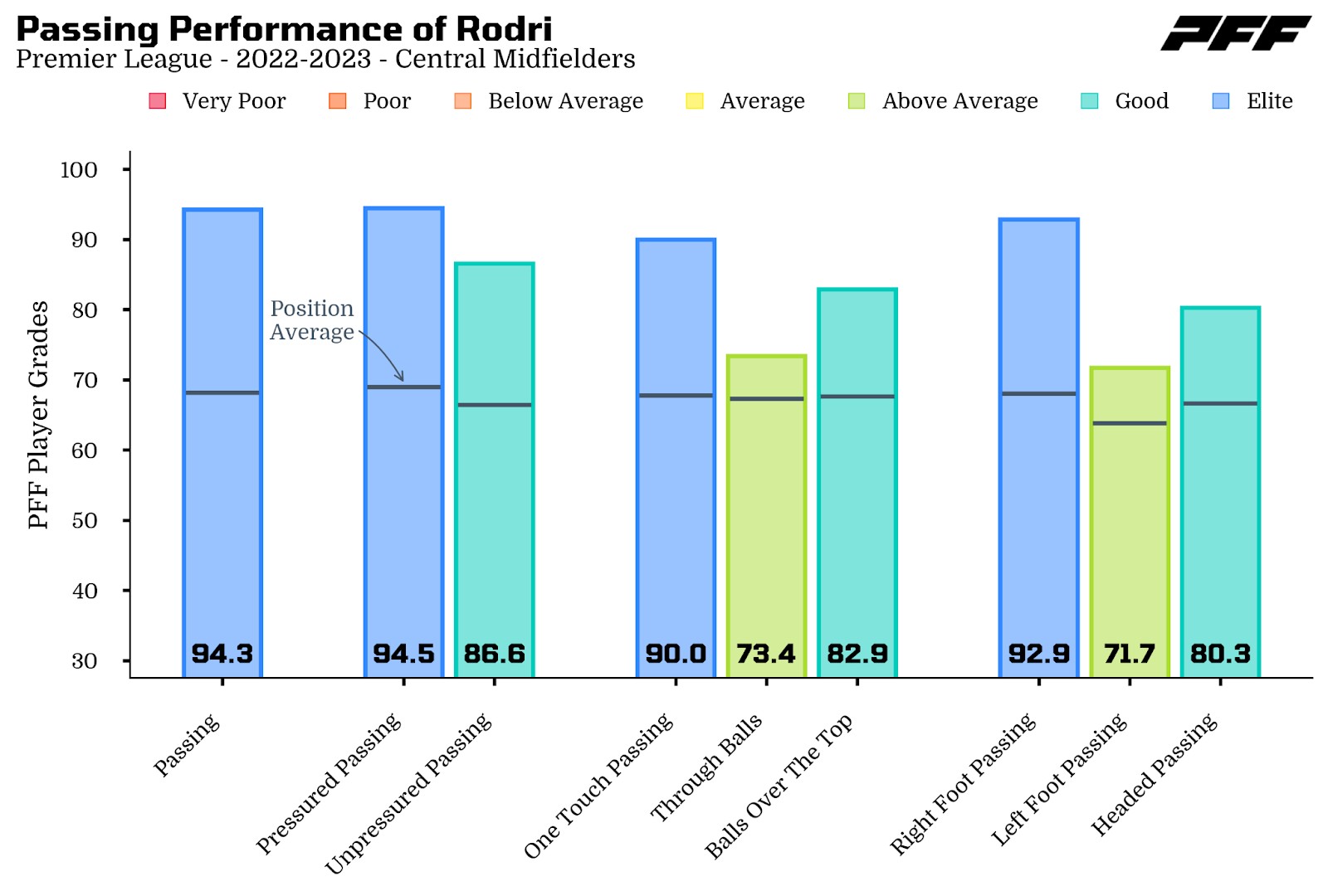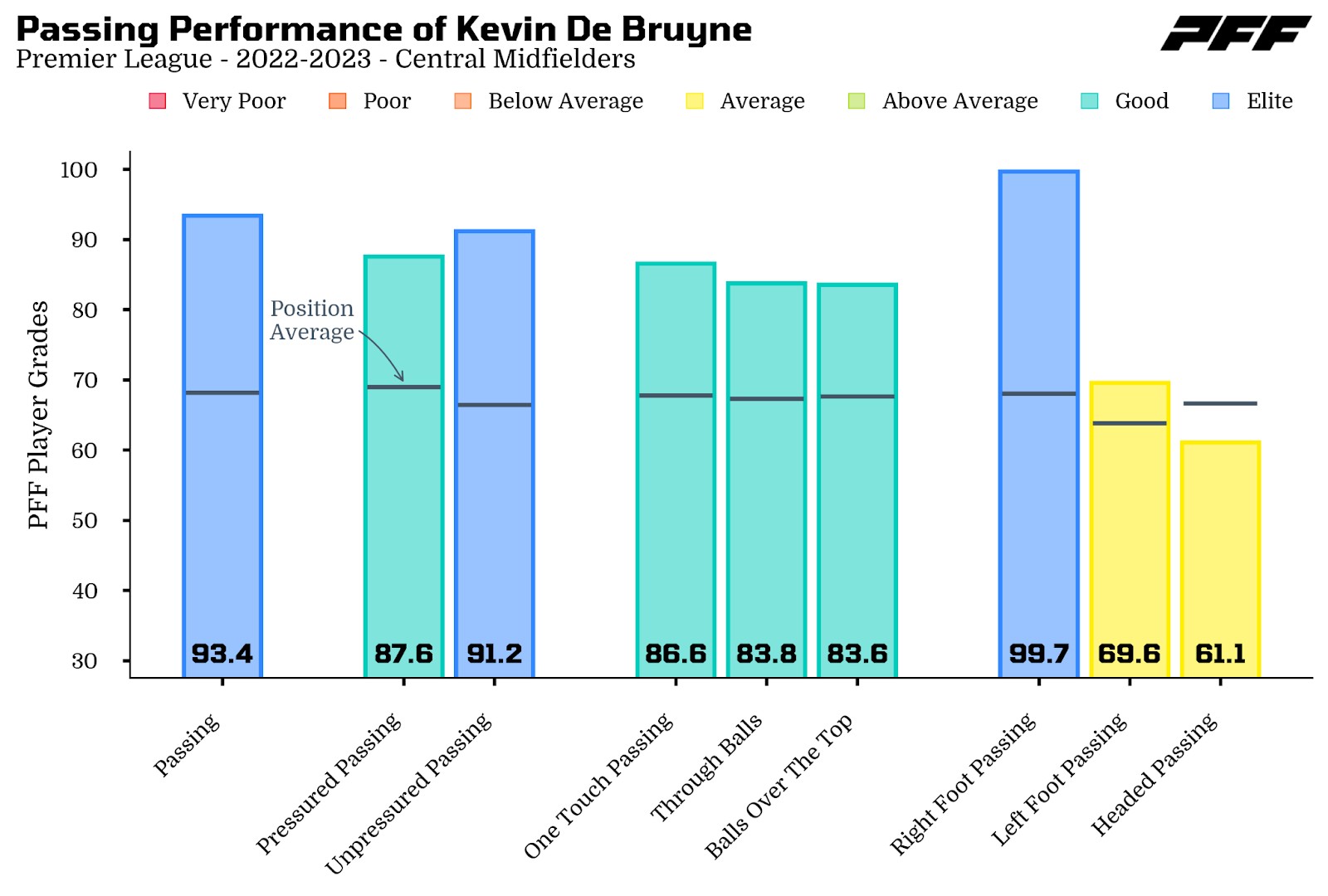In football, the vast majority of on-the-ball events are passes, with roughly three out of every four events being a pass. On average, a game consists of 900 passes so it's fair to say that passes are an important part of the game, but the context of each pass is crucial when evaluating a player’s passing ability and gets lost when we aggregate them into metrics such as pass completion.
Or, as Manchester City midfielder Kevin De Bruyne eloquently put it: “I think pass completion is one of the most wasteful stats for players like me, maybe for defensive midfielders it’s important but not for me. I can have 96% pass completion and I can play sideways and backwards, I wasn't dangerous for the whole game. It means I've done nothing. What's the point of it?”
At PFF, every event is enriched with context, and this includes our renowned player grades. The PFF player grading system evaluates every player for every event. Each player is given a grade of -2.0 to +2.0 in 0.5 increments on a given play, with 0.0 generally being the average or “expected” grade. This means an unpressured pass to a completely open target is expected to be executed successfully, leading to a 0.0 grade if completed, whereas a pass under pressure breaking the defensive line is above expectation, with a positive grade as a potential reward. For a detailed breakdown of how PFF player grades are calculated, read this article.
This gives us a tool to evaluate the passing performance of players in more detail or at least make an attempt to do so. Let’s focus on the two best passers in the Premier League during the 2022-2023 season: Rodri (94.3 PFF passing grade, 1st overall) and the aforementioned Kevin De Bruyne (93.4, 2nd overall).
Starting with pass completion, we understand where De Bruyne was coming from; his pass completion of 83% is barely above league average, while Rodri is tied sixth with 92%. De Bruyne was on to something, there might very well be a difference in the importance of pass completion for a defensive midfielder, such as his teammate Rodri, compared to more creative players like himself.

Let’s turn our attention towards play-by-play grades, specifically on the proportion of good passes (positively graded) versus bad passes (negatively graded). We are getting closer to finding an answer as to what makes both Rodri and Kevin De Bruyne good at passing despite the different context both players operate in.
Rodri's elite passing comes from his ability to avoid bad passes while attempting an impressive number of passes. As for De Bruyne, he stands out as an exceptional passer, producing a higher percentage of good passes than almost every player with the exception of Harry Kane.

Breaking down the passing performance of both Manchester City midfielders, we see that Kevin De Bruyne is among the elite or good passers for all pass categories as long as he uses his right foot. Rodri on the other hand excels in passing under pressure and one touch passing and is considerably better with his head.
Comparing the passing profiles of both players further, the main difference is found in the quality of their through ball passes. Unsurprisingly, through balls have a much lower average completion rate than more standard passes.


So we’ve arrived exactly where Kevin De Bruyne was pointing us (it’s not the first time he is spot on): pass completion is not suitable as a one size fits all metric to evaluate the passing performance of different types of players.
It is clear from looking at PFF passing grades that there are at least two types of elite passers; one that’s able to avoid bad passes and the other being able to produce a remarkable level of good passes. It becomes a matter of selection which type of passer is needed within a team, as tactical demands and playing styles ask for either one or the other.


 © 2024 PFF - all rights reserved.
© 2024 PFF - all rights reserved.